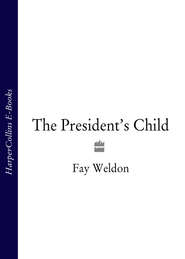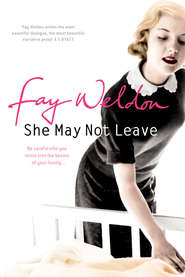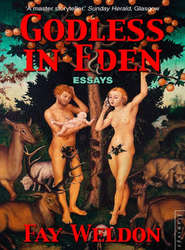По всем вопросам обращайтесь на: info@litportal.ru
(©) 2003-2024.
✖
What Makes Women Happy
Автор
Год написания книги
2018
Настройки чтения
Размер шрифта
Высота строк
Поля
If she’d stayed in Mara’s bed David would have come round to find Letty and at worst killed Henry – fat chance! – and at best told Mara, or if not that then he’d have been able to blackmail Letty for the rest of her life. ‘Do this or I’ll tell Mara’ – and she’d have had to do it, whatever it was: go whoring, get a further degree (not that there wasn’t some attraction in surrendering autonomy…)
But as it was it all worked out okay. Letty had her 10 minutes of sublime pleasure, felt anxious, felt guilty, and was rewarded by having her cake and eating it too. I don’t know what happened to the sheets. I daresay Henry calmed down enough to put them through the washer-dryer and get them on the bed again before Mara got back. I hope he had the sense to rinse out her nightie in the basin at hand temperature, not hot.
I do know that in the following week Henry sold the Fiesta and got a Jaguar which could outrun the Porsche any day, and he used the joint account to do it. He felt better about himself.
I allow Letty, having observed the moon, to sleep illicitly with Henry once, but not twice. It is a balancing act and she got it right.
It is doing what you should, if only in the end, and not what you want which makes others respect and like you, and to be respected and liked by others is a very good way to be happy.
Save your moral strength for what is important.
The Inevitability of Anxiety
What makes women happy? Nothing, not for more than ten minutes at a time. Anxiety, doubt and guilt break through.
‘Supposing my boyfriend comes back?’ ‘Have I left the fish out for the cat?’ ‘Should I be doing this?’
Blame nature.
It’s the hormones doing it, interfering with our happiness, not the mysterious thing called me.
Instinct rewards us by gratifying our sensual appetites. It also punishes us if we go too far.
It is when we are following the promptings of instinct, doing what nature suggests, going through the motions of procreation – however unlikely they are to succeed – even in the midst of our triumph and greatest pleasure that other warring instincts set in. ‘Clean the cave, keep the baby safe, are the food stores okay? What’s that rustling at the back of the cave? Can it be the sabre-tooth tiger? We can’t just lie here enjoying ourselves! Hasn’t he finished yet? Is the fire going out? Might a vulture swoop down to get the baby? What’s the woman in the next cave up to? Has he noticed my spare tyre? Is she a better bet than me? Will he go to her?’
While he, the man, is thinking solely about pleasure and completion, concentrating on the task in hand, our female minds are already wandering.
He: ‘Is something the matter, darling? You seem to have lost interest.’
She: ‘I just remembered I left the butter out of the fridge. Sorry. Now where were we?’
Our instincts overlap and contradict each other: the one to make babies struggles with the need to look after the ones already there; the one to compete with our friends with our need to have them at our side. It leaves us confused.
Sex with the new true love brings bliss, optimism, unguarded delight – and then: ‘Am I too fat, will he notice my varicose vein, will the baby wake, will his wife come back, should I have told him I loved him?’
With the wedding, it’s all ‘Will the flowers arrive, should I have worn this tatty veil, should I really be doing this?’
With the promotion, ‘Will my friends hate me, will my new office be okay, will my partner leave me if I earn more than him?’
The pleasure in the new baby is balanced out by the anxiety that goes with bonding. Bonding is one of the worst tricks instinct plays on us. The baby cries; the mother leaps to attention. It is a lifetime’s sentence to anxiety. It doesn’t get better with time. And it is not open to reason. Experience may tell us that the teenager late home is usually late home. But mother love is panicking: ‘He’s come off his bike. There’ll be a call from the hospital.’
The baby’s quiet – and it makes you happy and proud to have got him through to the end of the day. ‘But perhaps he’s stopped breathing?’ Wake him and see!
There are so many things to be anxious about. The baby’s not breathing. You only mascaraed one eye this morning. Sheer pleasure can trigger anxiety. When you’re nibbling caviare, or taking a taxi home loaded, or feeling spaced out at a concert, what do you think? ‘I shouldn’t be here. I am going to be punished. I shouldn’t be doing this. Something terrible is about to happen. I do not deserve to be happy.’
Well, maybe you don’t. That may be the trouble.
We are more than creatures of the cave, ruled by instinct. We are moral beings as well.
Guilt, Offshoot of Anxiety
Guilt also stands between you and enjoyment. It’s an offshoot of anxiety.
‘Shouldn’t have done this, shouldn’t have done that. Shouldn’t have had a one-night stand. Shouldn’t have eaten a bar of chocolate…’
It too is instinctive, hardwired in. It applies itself to any number of situations. When we succumb to ‘inappropriate’ sexual desire, eat the forbidden chocolate – anything that makes us feel bad – that’s when the instinctive self, determined to satisfy its appetites, is in conflict with the socialized self.
‘Ought not to endanger my relationship. Ought to lose weight.’
Feel it in its purest form when you neglect your children: ‘Three in the morning, the baby’s crying, but I’m too tired to bother.’ Baby wins: eventually you stir yourself, get out of bed and see to it. Thus Mother Nature, that unseeing, unthinking, callous creature, ensures the continuation of the race.
Whether or not you have children, the capacity to feel guilt is there. Stronger in some than in others. Certainly stronger in women than in men.
She: ‘We need to get back, darling. The babysitter’s waiting up.’
He: ‘Oh, for heaven’s sake. What do we pay her for?’
Guilt is society’s safeguard. If you don’t feel guilt at all they declare you’re a psychopath and lock you up, and quite right too.
Let me add to that – just to counter the effect of so much Darwinian reductionism, which is true enough but there are other truths as well, namely that we have a spiritual life – that guilt is the soul’s safeguard. And if the soul is safeguarded, we start from a higher level of life content than we would otherwise do. If you are good – abstain from bitchiness, doing others down, malice and complaint – people like you. If you are liked, you tend to have a good life.
Be good and you’ll be happy. Be happy and you’ll be good and go to heaven.
As a corollary, if you don’t respond to the promptings of guilt, you might very well go to hell – in other words, fall into a depression, get ill and end up with no friends.
The Value of Guilt
You could see the ‘oughts’ and ‘shoulds’ which litter our lives as a nuisance, as contrary to our own self-interest. So our partner suffers because we were unfaithful, so our mother is lonely and upset because we didn’t visit, so our children weep uncomforted. So who cares? ‘I really deserve a holiday. I deserve it because I’m me.’ Stuff and nonsense.
‘Now at last,’ says the new-style granny, abstaining from babysitting, spending the children’s inheritance, ‘I’m going to do something for myself.’
You won’t enjoy it, you know. You will feel guilty and selfish every minute of your sun-soaked, pampered holiday, and so you should.
Therapists may well try and iron the emotion of guilt out of us, and some do, seeing it as ‘negative’. By which they mean it’s uncomfortable, painful and inconvenient, and aren’t we trying to achieve happiness here? ‘Look to your own skin,’ they advise. ‘Do what you want.’
Alexander Crowley, black magician, rapist and philosopher of Edwardian times, self-styled Beast no. 666, had this as his philosophy: Do what thou wilt shall be the whole of the Law. It was an attitude seen as very shocking at the time, even satanic. If it doesn’t sound all that unreasonable now it may be our loss as, seeking validation for our bad actions, we virtuously pursue the ‘authenticity of our feelings’ (‘I have to leave you and the kids because I’m in love’) and decide we deserve every good thing, in the words of the shampoo ad, because we’re worth it.
Self-esteem can go too far – a little low self-esteem might not come amiss as we consider our faults and failures. On our deathbeds the memory of the authenticity of our feelings might not seem as important as the love and company of our friends and relatives.
There is a truly simple answer to the pains of guilt: If you feel bad about it, don’t do it.
Now there’s an old-fashioned doctrine. Step by step, little by little, do what you should, not what you want.
Conscience is to the soul as pain is to the body. It keeps you out of harm’s way.
Doing Bad and Feeling Worse
There are little everyday acts of meanness, little evils which are under our control, little tactlessnesses meant to hurt, which contribute to our own unhappiness. For hidden somewhere within us is the fear of retaliation. ‘If I do this, you might do that.’ You get wary and untrusting. Meanness shows – it’s bad for the complexion, gives you a dull skin, wrinkles and squinty eyes. You end up, in fact, with the face you deserve.











